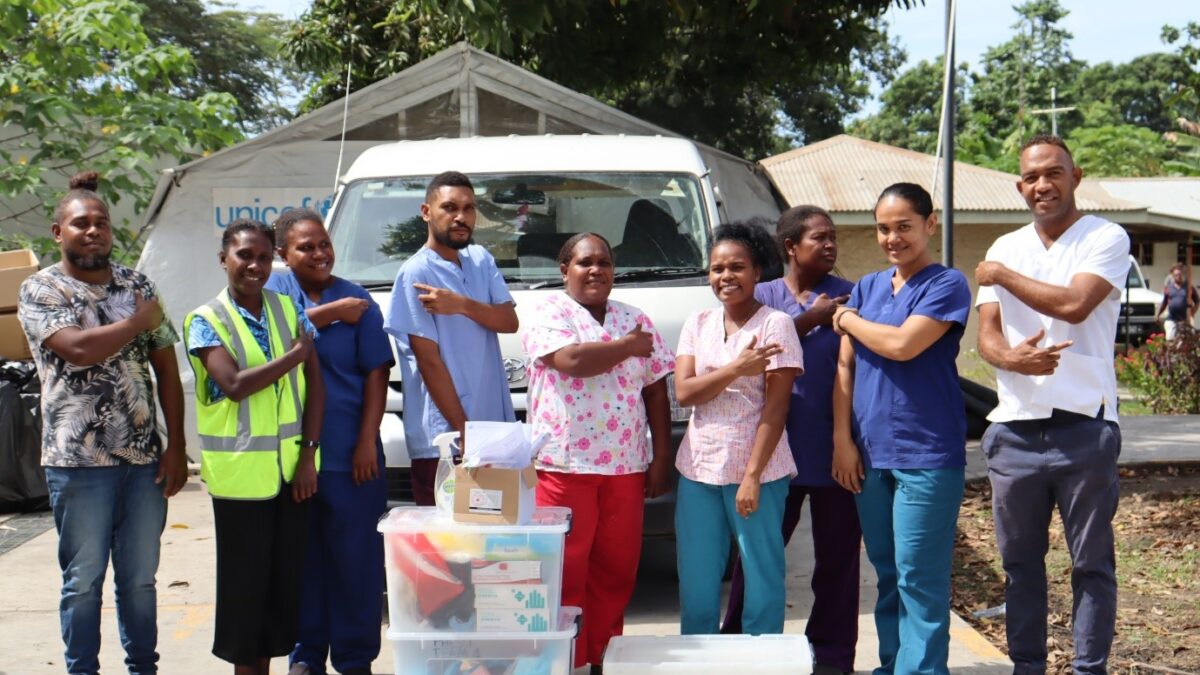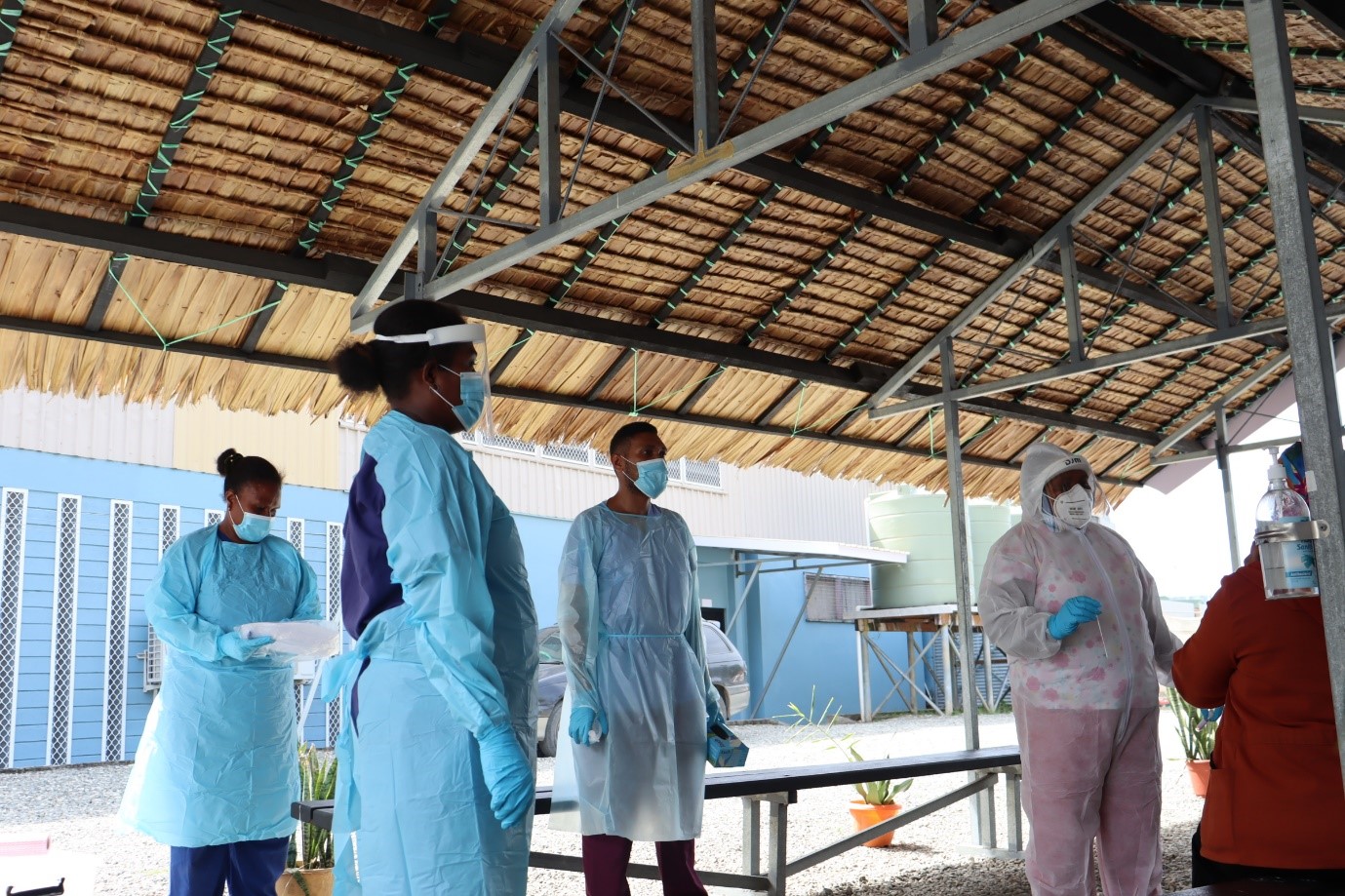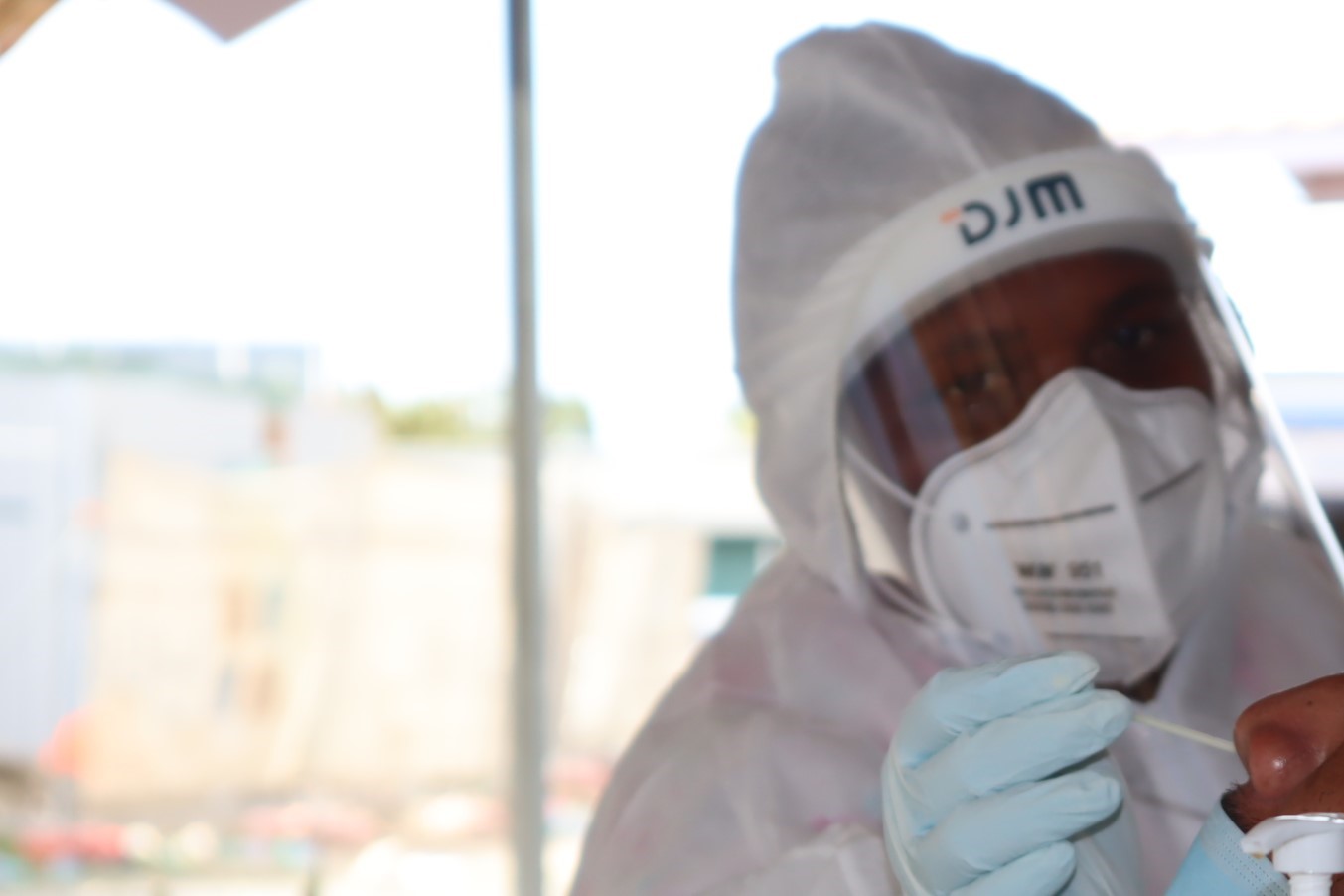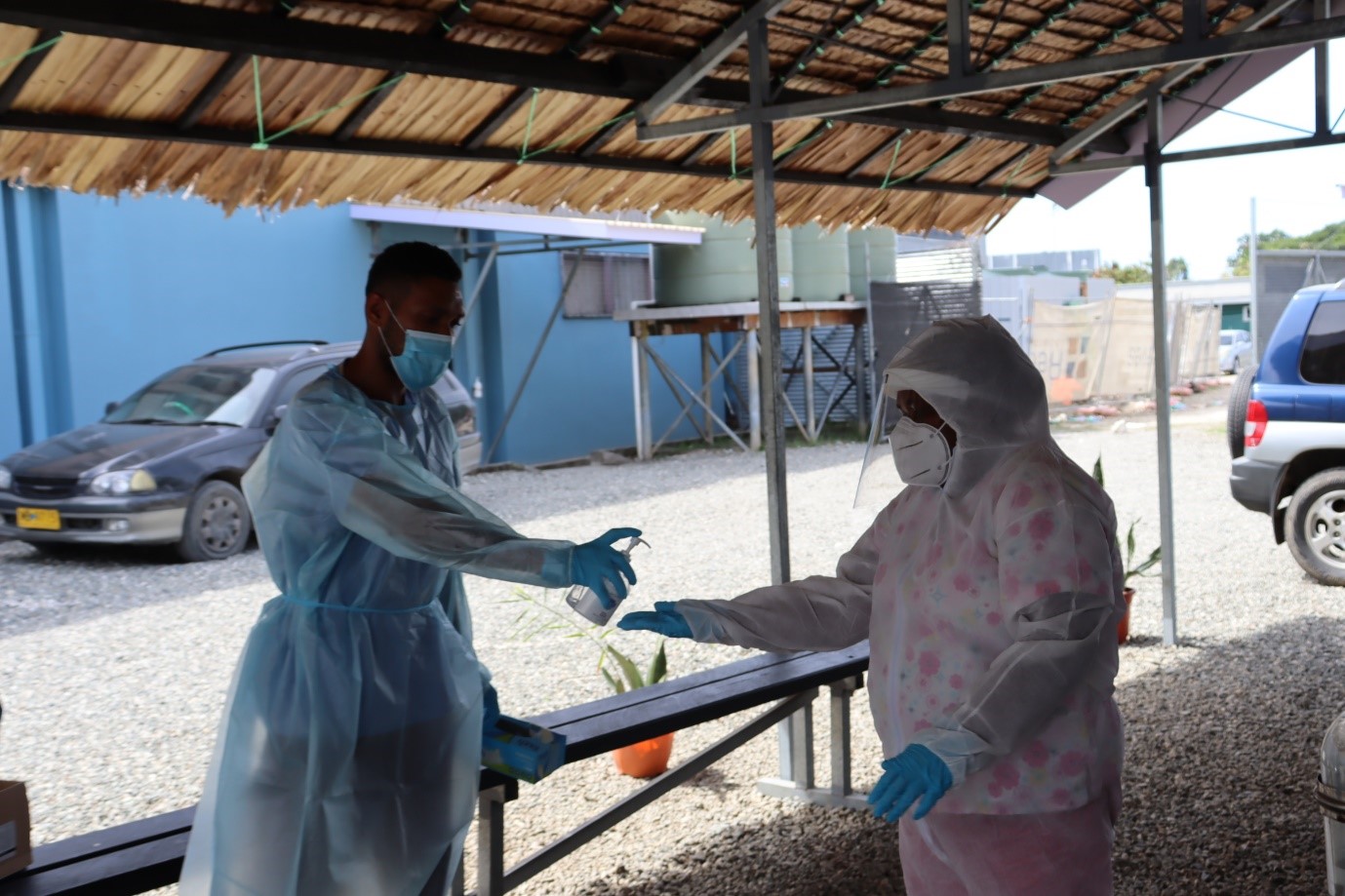

Swabbers and their swab tools. Their message to the public. “We are very pleased to have served you since last year and with the vaccines now available, we request you help us too by taking your COVID-19 vaccine dose”.
Meet our COVID-19 “Swabbers”, the faces behind the PPEs.
From all COVID-19 operations in the frontline, this particular group known inside the Ministry of Health as “The Swabbers” are the most at risk group of people to contract COVID-19. Why? They literally had to breach one of the fundamental key COVID-19 public health measures, social distancing of at least one meter, in order to perform their duty to collect swab samples for COVID-testing.
Around the world these group of people continue to make critical sacrifices to their countries for the sole purpose of swiftly detecting COVID-19 for necessary and appropriate actions by the state to contain and manage virus. Similarly, in Solomon Islands, the work of swabbers, since the restricted opening of our borders for repatriation flights, they too have performed this critical role.

Swabber and receiver in position ready swab collection.
It has, been over a year now since health collected the first swab from the first repatriation flight to Honiara in March 2020, and until to date, there has not been one single swabber, let alone the rest of the frontline workers, contracting the virus from new arrivals into the country.
This speaks volumes, not only on the stringent measures, infection, prevention and control measures and effective standard operating procedures in place but also strict observation and adherence to these measures, protocols and procedures by the swabbers.
Member of the Swab team Ms. Sally Fakatonu explained that every morning we had to go through our schedules for swabbing at the quarantine stations, pre-departures, suspect cases etc. for the day and depending on risk levels, we then wear the appropriate level of Personal Protective Equipment (PPEs).
“So for instance, with arrivals from high risk countries we will wear level 3 PPEs which comprised of full body cover, gloves, face masks and shields to collect swabs”, said Ms Fakatonu.
“For high and low risk flight we collect swabs on 48 hours upon arrival, 5 to 10 days of quarantine, 12 to 14 and only with high risk flight we conduct one additional swab on day 19 to 21 days of quarantine, due to their extended stay in quarantine”, she further added.
Bartholomew Anga another swab team member outlined the process involved in collecting the swabs.

Swab member-extracting sample via nostril
“After wearing our protective gears, we move within a meter to the subject and stick in the swab stick through the nostril, few twists of the stick as part of collecting the samples. We then remove the stick turn and hand over to one of our members; the swab receiver then places the sample inside the test tube ready for transportation to the Molecular Laboratory for testing”.
Barbara Quiro, team lead for the swab team at the MHMS Surveillance department said that since swabbers breach the social distancing health measure and IPC measures, swabbers are being observed carefully in each step of the swab process by team lead, which includes herself. If the test returned positive, then the National Infection, Prevention and Control (NIPC) team of health will conduct a risk assessment to the swabbers.
Barbara Quiro explain the swab work -flow.
“Swabbing team has a standard workflow in all quarantine stations where swabbers has their own task during the process to avoid been cross over to other task during swabbing time. All has to practice IPC measures and do buddy system approach to all team members during the process of swabbing and collection of specimen.”
These assessment forms replicate the standard WHO risk assessment forms such particular processes.
To date there has not been any breaches with our swab team, all continuously passed the risk assessment and NIPC assessment for all 20 COVID-19 cases registered in Solomon Islands.

Following swabbing, swabbers disinfect hand gloves with 70 percent alcohol hand sanitizer
Overall, this group of frontliners continue to do their duties with due diligence, commitment and dedication. To date around 14,000 swabs have been collected and this is for COVID-19 testing ranging from quarantine testing, pre-departure test, tests at points of entry, surveillance, clinically suspected cases, contact tracing and so forth.
Thus, whenever you come across them along the street thank them and respect them as they are the ones serving in our frontline risking their health and lives for the protection of our country against the global pandemic, COVID-19. We should never stigmatize them for their work in risky settings to keep our country safe.
Their only message to the public is, “we are very pleased to have served you since the commencement of our repatriation program and we kindly ask all persons 18 years to come forward and get your COVID-19 vaccination dose once it is available in your areas”.
Get your COVID-19 vaccination jab and lets all protect ourselves, your families and our country.
MHMS Press